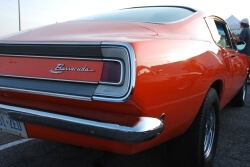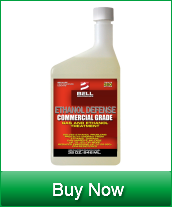Better Gas Mileage Means Lighter Cars Coming
Cars and trucks have really changed in the last ten years. Watch old TV shows from the 50s and 60s or nostalgic movies like American Graffiti, and...

 Winter gas mileage tends to be lower than what you typically get in the summer, leaving many drivers scratching their heads. Some may theorize it’s an oil-company conspiracy, that they must be adding something to the gas to cause drivers to have to buy more. The reality may not satisfy the conspiracy theorists that well. There are other things that help cause this drop besides just the gas itself.
Winter gas mileage tends to be lower than what you typically get in the summer, leaving many drivers scratching their heads. Some may theorize it’s an oil-company conspiracy, that they must be adding something to the gas to cause drivers to have to buy more. The reality may not satisfy the conspiracy theorists that well. There are other things that help cause this drop besides just the gas itself.
The truth is that, yes, gas mileage does drop in the winter. And yes, it is because the gas is different. But if you’re going to blame anyone, blame the EPA, not the oil companies.
Gas refiners are required to change the gas blends from summer to winter and vice-versa, in order to meet environmental regulations. In the summer, the weather is hotter, so they have to make the gas less volatile to reduce the amount that evaporates into the air during fillup.
When the weather gets colder, they have to change the gas back, making it more volatile so that it will actually burn properly in the cold. This means changing its composition, and the resulting winter gasoline has about 2% less energy value than summer blend. Less energy means lower mileage.
But 2% less energy isn’t going to cause that much of a mileage drop. There are other reasons in play here.
When the weather is cold and the engine is cold from sitting overnight, it’s going to need a richer gas-air mixture to fire up and idle. This means that, in the winter, you burn more gas from startup until the engine is warm. And this cuts your gas mileage from what it was in the summer.
Other factors that pile on to the MPG reduction include the tendency for drivers to idle more (including those that think you have to warm your engine up like you did in the old days) and cold weather effects on tire pressure (tires get softer in the cold, so you burn more gas driving).
For the most part, the same advice for better gas mileage in the summer will apply year-round. Much of it is common sense. Then again, common sense may not be so common these days.
Lastly, clean out your engine with a regular fuel treatment that has a cost-effective treat rate. Using an effective multi-function treatment like Ethanol Defense will make sure your injectors and combustion chamber stay in their optimal condition for producing the best performance for your vehicle.
Just keep in mind that the amount of you spend on the treatment should be low enough to make it cost effective. Buying a single treat bottle of gas additive that costs $8-9 could mean it’s costing you 60 cents a gallon to use. You’re never going to break even there. But choosing something that might cost more (Ethanol Defense costs about $24 a bottle) but treats a lot more fuel (Ethanol Defense would treat over 20 tanks of gas for that price) means now you’re only paying maybe 8-10 cents a gallon.
Which is better for you? 8 cents a gallon or 60 cents a gallon?

Cars and trucks have really changed in the last ten years. Watch old TV shows from the 50s and 60s or nostalgic movies like American Graffiti, and...

Gas prices may be going down but it's always a great idea to be thinking about saving money on the road by doing some little things to get better...

Within the next ten years, analysts project a significant chunk of the new cars on the road will be "self-driving" vehicles, also called autonomous...